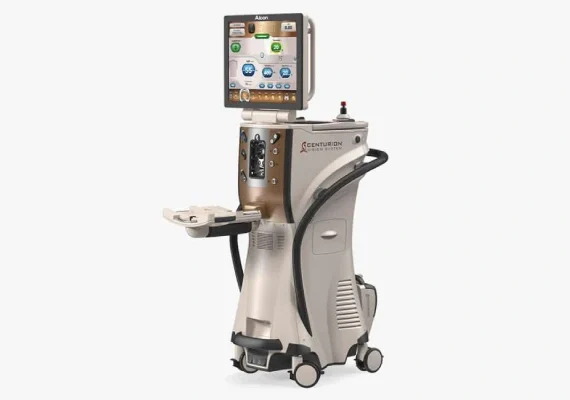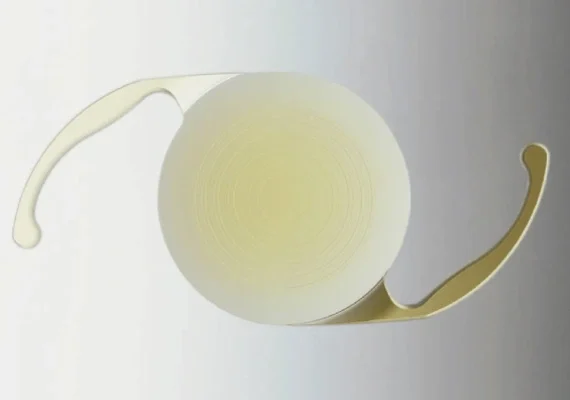Cataract has been the most common cause of treatable blindness, since centuries. Today modern microsurgical techniques utilizing state-of-the-art equipment, lenses and surgical material, allow people to enjoy good, clear vision after cataract removal & IOL implantation.
We at Shreya Eye Centre in Delhi provide state of the art services for Cataract. Our eye surgeons team at Shreya Eye Clinic in Delhi are trained from most premier institutes of Ophthalmology , like L.V.Prasad Eye Institute , Hyderabad ; Arvind Eye Hospital,Madurai; Sankara Netralaya, Chennai.
We provide latest techniques available in market. Best technique but cost effective Cataract surgery is our uniqueness.
We are providing all techniques of cataract surgeries like MICS ; FLACS; Phaco etc.
All types of Intraocular lenses including Multifocal IOL; Trifocal IOL; EDOFF; Toric IOL; Toric Multifocal IOL are being offered to patients at affordable prices
Learn About Cataract & IOL Service
- What Is A Cataract?
- Why Does A Cataract Develop?
- What Are The Symptoms Of A Developing Cataract?
- Can Cataract Be Prevented Or Treated With Medication?
- When Can One Undergo Cataract Surgery?
- What Does Cataract Surgery Entail?
- Are There Any Problems With An Intraocular Lens (IOL)?
- Is it posssible to get rid of glasses after IOL implant?
- What Are The Latest Advances In Intraocular Lens (IOL) Technology?
- Can All Patients Having A Cataract Undergo Phaco Surgery?
- Is Clear Vision Guaranteed After Surgery?
- What Are The Possible Complications That Can Occur With Cataract & IOL Surgery?
- Can Cataract Be Treated With Lasers?
- Benefits Of Cataract Surgery ?


What Is A Cataract?
It is a cloudiness of the normally clear lens in the eye. It prevents the lens from focusing light onto the retina and hence causes unclear vision. As the cataract advances, this cloudiness of vision increases over a period of time until the vision is completely impaired.
Why Does A Cataract Develop?
Cataract development is part of the normal ageing process. Almost all people above the age of 60 years have cataract of a variable degree, although it can occur at an earlier age also. In some people cataract development is aggravated by an eye injury, presence of diabetes, use of medications or other eye diseases. Rarely cataract may be present in the newborn as a developmental defect.
Can Cataract Be Prevented Or Treated With Medication?
Cataracts that occur due to the ageing process cannot be prevented as the ageing process itself cannot be prevented. Using the eyes for reading and similar activities has nothing to do with cataract formation. Avoiding the use of eyes will not prevent cataract. Till date as per all authentic medical research no medication exists to prevent or cure a cataract. The only known treatment for cataract is surgery.
When Can One Undergo Cataract Surgery?
Cataract surgery should be performed as soon as the patient feels difficulty in performing routine activities at work and leisure. With modern microsurgical techniques of stitch-less cataract surgery (MICS) it is not advisable to wait for the cataract to mature.
What Does Cataract Surgery Entail?
Cataract surgery is safest and most successful forms of eye surgery. It is a day care procedure and is generally performed under local or topical anesthesia. The patient is awake during surgery but does not feel any discomfort or pain. Patients are ambulatory immediately after eye surgery and are discharged in 2-3 hours.
Step 1 : The eye operation is performed with the help of a sophisticated operating microscope. A small entry of 2.2 mm is first made at limbus
Step 2 : A smooth round opening is then made in the front part of the lens capsule, which is a thin membrane enclosing the entire lens
Step 3 : All cloudy lens material within the lens capsule is then removed through the same port by the procedure of phacoemulsification using a thin titanium probe. This breaks the cataract into tiny pieces, which are then suctioned out of the eye through the same probe.
Step 4 : In the final step, a foldable intraocular lens (IOL) is introduced through the small port, and placed within the capsule of the lens where it unfolds and stays in place securely.
Compared to non-phaco cataract surgery, the postoperative rehabilitation for MICS is faster and one can return to normal work and activities within a few days. This is currently the most effective method for removing cataracts.
Femtosecond assisted Cataract surgery is another advancement which helps in few steps of MICS.
Are There Any Problems With An Intraocular Lens (IOL)?
The technological advancements in IOL manufacture and surgery have made it quite safe. IOL implantation is now integral part of all cataract surgeries.
Complications are rare and similar ones can occur with conventional surgery without an IOL implantation. All patients irrespective of other general illnesses like diabetes, hypertension etc., can have IOL surgery.
IOL implantaion is very rarely , if at all , not implanted. If there is any reason why you should not have an IOL implantation, your ophthalmologist will explain.
Very rarely if IOL is not implanted in primary procedure, it can be implanted later.
Is it possible to get rid of glasses after IOL implant?
Yes, it’s very much possible to get rid of glasses after Cataract surgery with refractive IOL implantation.
Advanced IOL’s like Toric IOL, MFIOL, Trifocal IOL, EDOFF IOL, Toric MFIOL can provide excellent spectacle independent vision for routine daily activities. Though glasses may be required by some patients for limited activities.
But before selecting refractive IOL’s you are required to go through proper assessment and counselling by your Ophthalmologist.
What Are The Latest Advances In Intraocular Lens (IOL) Technology?
Advances in IOL technology have made available various state-of-the-art IOLs. These new lens designs include
- Blue-light blocking IOLs that filter out harmful ultraviolet radiation as well as blue light,
- Aspheric (Aberration-free) IOLs which greatly improves image quality by enhancing contrast, eliminating glare and halos, and improving night vision, and
- The newer Trifocal / EDOFF/ Multifocal IOLs which provides good unaided distance and near vision with less dependence on glasses.
- Toric IOLs are also available for the correction of high cylindrical spectacle numbers.
- Toric Multifocal IOL’s can correct astigmatism along with good distance and near vision without glasses
- MIL (micro incision lens) can be inserted through incision smaller then 2mm.
- Depending on the patients’ personal visual needs, the surgeon decides the most appropriate lens to implant in the eye.
Can All Patients Having A Cataract Undergo Phaco Surgery?
With Latest advances in technology like, now its possible to do MICS / Phaco in more then 99% patients.
But there may be rare situations where phacoemulsification may not be advisable such as poor endothelial counts, subluxated cataracts, poor view for surgeon as in corneal scars etc.
Newer generation machines like Centurion vision system for MICS can help surgeons in tackling most difficult and challenging Cataracts with ease.
Your eye surgeon will be the best judge to decide whether you can undergo phaco-surgery. Each patient undergoing cataract surgery is examined in detail to assess the health of the cornea.
Is Clear Vision Guaranteed After Surgery?
- No surgeon in the world can perform a surgery with guaranteed results. However, almost all the patients regain good vision following cataract surgery.
- Most patients get normal vision with in 1-2 days after cataract surgery. Blurred vision may be present immediately after surgery which improves gradually
- Any problem in the cornea, retina or optic nerve may limit the potential for clear vision even when the cataract surgery itself has been successful.
What Are The Possible Complications That Can Occur With Cataract & IOL Surgery?
Modern microsurgical techniques for cataract removal are highly successful procedures. The few complications that exist are becoming even more remote, with newer developments in surgical techniques and anesthesia.
Some minor complications that can occur include a redness, swelling around the eye, corneal haze, reflections or slight distortion from the lens implant, which are usually temporary. The chances for serious complications are negligible.
Possible serious complications include infection, severe inflammation, and hemorrhage, corneal edema. In a majority of cases these complications can be treated successfully with a good final restoration of vision. The above list is however not exhaustive.
Can Cataract Be Treated With Lasers?
Contrary to a popular myth cataract cannot be removed with lasers. Surgery done by MICS / Phaco is commonly termed “laser eye surgery” by many people. The procedure involves No stiches, No big Incision and ultrasound energy is used to emulsify cataract.
Femtolaser Laser Assisted Cataract Surgery (FLACS) has been wrongly popularised as Bladefree or Robotic Cataract surgery by some people. This misguide common man and wrongly give impression that surgery will be done with laser and without any cut.
However, in a certain number of patients undergoing cataract surgery, the back part of the lens capsule may become thick or opaque over a period of time causing blurred vision.
This is known as a secondary cataract. This is not a complication. The condition is treated with a “YAG laser capsulotomy” with full restoration of patient’s best vision.
Benefits Of Cataract Surgery:
There are numerous benefits of cataract surgery, many of which cannot be measured statistically. These include: – improved colour vision – colours are brighter and more vivid after cataract surgery.
- Greater clarity of vision – vision is crisper and sharper after cataract surgery.
- Improved quality of life – studies have repeatedly shown that people enjoy an improved quality of life after successful cataract surgery. Many
- Improvement in confidence is a major benefit
- Vision improvement has many indirect health benefits like decrease in accidents , resumption of activities like driving, ability to read finer prints etc
- People can resume driving, reading, writing, watching television, sewing, household work and using a computer immediately after. Even when retinal diseases or other problems prevent a total restoration of vision, the remaining vision is usually improved by cataract surgery.
Schedule Your Eye Care Appointment
Submitting your appointment request is the initial step towards personalized and timely eye care.
Our team will contact you within 24 hours to confirm your appointment. For immediate assistance, please call us directly.

